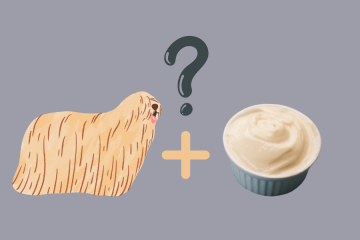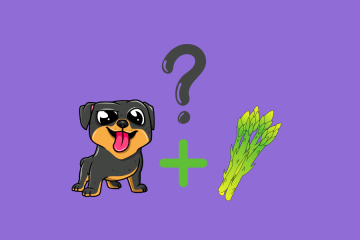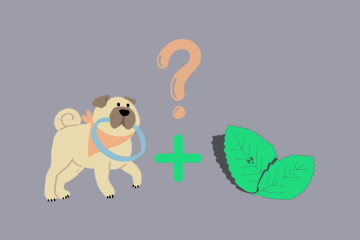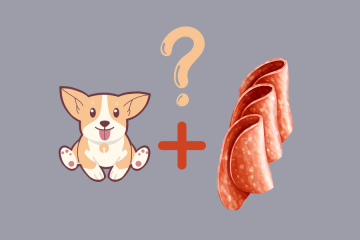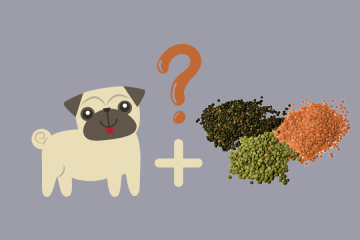Recently, I’ve taken my dog to the forest for a walk. He couldn’t have been happier. Little did I know about how many potential dangers there were. I noticed my Bobby munching on some mushroom, and I panicked. I wouldn’t let my children eat them, why would I let my dog? Luckily, the vet said Bobby is fine. But your dog may not be so lucky. Here’s what I need to share with you:
Key Takeaways
- mushrooms like portobello, cremini, button, oyster, and shiitake are safe for dogs
- wild mushrooms are dangerous for dogs, even in small amounts
- clitocybes, inocybes, galerinas and amanitas are fatally toxic to dogs
- you can prepare a mushroom stew for your dog
Can Dogs Eat Mushrooms?
Can dogs eat mushrooms? Mushrooms can be a great addition to your dog’s diet, but it is important to only give them the safe mushrooms to avoid mushroom poisoning. Many mushroom species are extremely toxic for dogs, and so it is best to stop your dog from eating wild mushrooms.
The safest mushrooms for dogs to eat are button mushrooms, cremini mushrooms, shiitake mushrooms, portobello mushrooms and oyster mushrooms. These mushrooms are rich in nutrients and antioxidants, and can provide many health benefits for your pup. Be sure to try our easy Shiitake Mushroom Dog Stew recipe if you want to start adding mushrooms to your dog’s diet!
Which Wild Mushrooms Are Poisonous for Dogs?
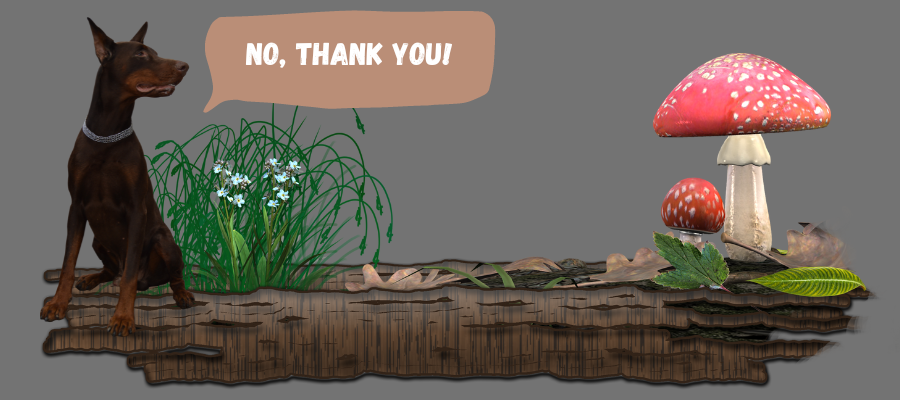
Can dogs eat mushrooms? Certainly, not these: Amanitas, Inocybes, Galerinas, and Clitocybes. Wild mushrooms may seem harmless, but for our beloved canine friends they can be deadly. Dogs should always steer clear of these potentially fatal fungi as their toxins contain ibotenic acid, muscarine and amanitin – all three are incredibly dangerous to pooches! Stay vigilant when walking Fido in the park or around woody areas – it could save your pup’s life. Here are some more details about these mushrooms.
Amanitas
Amanitas, or the “death cap mushroom,” are a potentially deadly fungus for our canine companions. Though found across many countries and climates worldwide, temperate regions play host to some of the most dangerous kinds – like Amanita muscaria – identifiable by their bright red caps with distinctive white spots. Once consumed by dogs, these fungi can cause inexorable liver failure and kidney damage due to the powerful amanitin toxin they contain; in worst case scenarios it may even result in death!
Inocybes
Beware the inocybe! This type of mushroom may be familiar to hikers due to its presence on wood chips or mulch, especially during late spring and early summer. But this seemingly ordinary fungi can spell disaster for man’s best friend – ingestion causes vomiting, diarrhea and abdominal pain that most pooches would rather do without. Keep furry family members far from these dangerous mushrooms at all costs!
Galerinas
Galerinas are a sinister species of mushroom found across the globe, but they particularly like temperate climates. Unfortunately for dogs, these fungi contain numerous toxins such as amanitin and muscarine which can cause vomiting, diarrhea and even death if ingested. Perhaps most notorious is the autumn skullcap (Galerina autumnalis) – a subspecies that should be avoided at all costs!
Clitocybes
Clitocybes are a species of wild mushroom that contain toxins which can cause vomiting and diarrhea in dogs because of their high ibotenic acid and muscarine content. Some clitocybes are safe, but most are very toxic for dogs, such as the Clitocybe dealbata (commonly known as the fall webcap). These mushrooms grow on wood chips or mulch throughout North America during certain times of year, and are also common in England and Wales, as well as other parts of Europe.
Can You Feed Mushrooms to Your Dog and Avoid Poisoning?
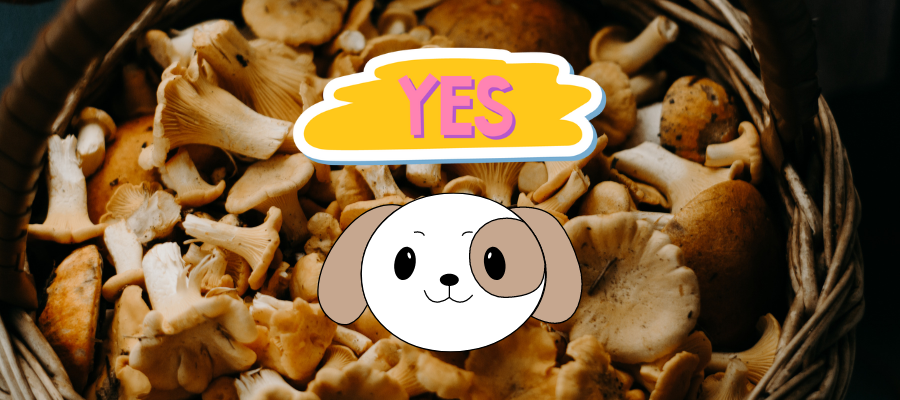
Can dogs eat mushrooms without the threat of getting sick? Mushrooms can be safe, and even beneficial for dogs, but only if they are the right type of mushroom. There are many different varieties of mushrooms, and just as some are toxic, some can give your pup a welcome boost to their health that they will thank you for.
The Benefits of Mushrooms
Mushrooms are a good source of protein and fiber, as well as vitamins B and C. They contain antioxidants, which can help to reduce inflammation in the body and protect against free radical damage (the same way that mushrooms benefit humans). This high antioxidant content has been show in certain species of mushroom to have anti-cancer properties. Mushrooms are also a good source of selenium and potassium, which can help to keep your dog’s heart healthy. They also contain zinc, iron and calcium.
The Safe Mushrooms
Certain kinds of mushroom can be a great source of vitamins and minerals for dogs, including potassium, zinc, riboflavin and niacin. They also contain antioxidants, which can help boost your dog’s immune system. Some mushrooms have been shown to have anti-cancer properties as well. Here is a short list of mushrooms that you can be comfortable feeding your dog:
- button mushrooms;
- cremini mushrooms;
- shiitake mushrooms;
- portobello mushrooms;
- oyster mushrooms.
These mushrooms are fine for dogs to eat, and can provide many health benefits. They contain no toxins, so mushroom poisoning is not a risk, and they have a mild flavor that most dogs will enjoy. They are rich in nutrients, and can be added to your dog’s food as a supplement or used in recipes like our easy Shiitake mushroom dog stew recipe.
Shiitake Mushroom Dog Stew Recipe
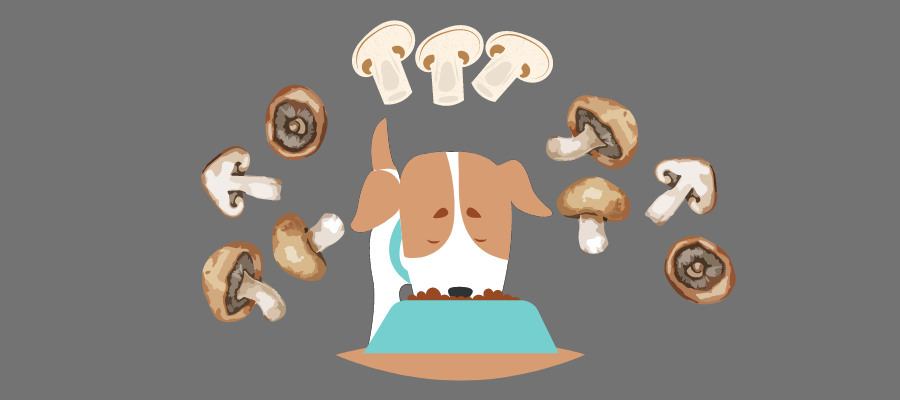
If you want an easy recipe that has nothing to do with mushroom poisoning in dogs, we have the one for you. Have a go at making this lovely meal from store-bought mushrooms for your canine companion.
Ingredients
- ½ cup chopped onion
- ¼ cup diced celery
- ¼ cup diced carrot
- ½ pound shiitake mushrooms, sliced
- ¾ cup beef or chicken stock
- Fresh parsley, for garnish (optional)
Instructions
Create a savory and flavorful base for your next meal! Start by heating a large pot over medium heat, then sautéing onions until they become transparent. Throw in the celery, carrot and mushrooms to cook for five minutes – make sure you stir often so nothing burns! Finally, pour in some stock and let this heavenly mixture simmer for ten minutes before serving it with garnish of fresh parsley if desired.
Sarah Jameson is a journalist, reporter and a pet nutritionist. She is married to Peter, and they have two beautiful children, Zoey and Quinn. In her spare time, Sarah enjoys cooking for her family and playing snooker. She also loves spending time with her Scottish Terrier, Bobby.


